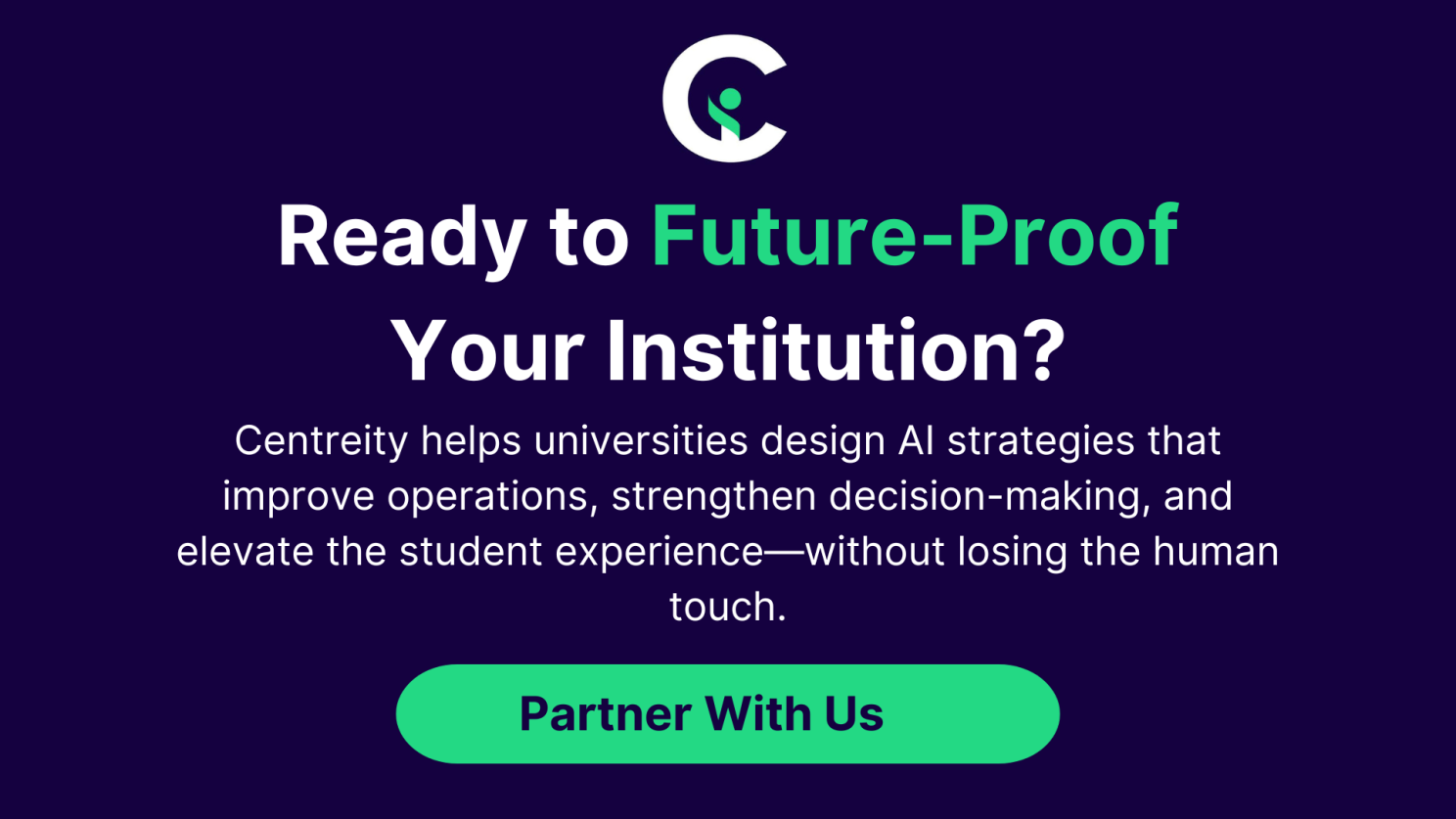Future-Proofing Higher Ed: AI’s Role in University-Wide Digital Transformation
Mar 26
/
Charley Wright
As digital transformation becomes mission-critical in higher education, AI offers more than just automation—it’s a strategic enabler for impactful, human-centered change.
We’ve seen firsthand how thoughtfully integrated AI can streamline operations, enhance student services, and drive institutional innovation. From admissions to advising to alumni engagement, it’s time for higher ed to align AI with real challenges—ethically, inclusively, and sustainably.
The higher education landscape is undergoing a fundamental shift—one where digital transformation is no longer optional but essential. At the heart of this transformation is Artificial Intelligence (AI), a powerful enabler that can optimize operations, enhance student engagement, and future-proof institutions. Yet, for AI to drive real impact, it must be thoughtfully integrated across all departments that shape the student journey.
Beyond Automation: AI as a Strategic Enabler
From admissions and academic advising to career services and alumni relations, every touchpoint in the student experience stands to benefit from AI. Universities that take a holistic approach—leveraging AI for both administrative efficiency and pedagogical innovation—position themselves as forward-thinking institutions that empower students for the future of work.
As veteran experts in technology adoption, we focus on identifying pain points within institutional workflows and aligning AI solutions to address real operational and academic challenges. True AI-enhanced organizations take a human-centered approach, ensuring that technology serves the people who use it—whether by removing inefficiencies, improving student advising, or strengthening decision-making.
AI should not be implemented for its own sake but as a strategic tool that enhances institutional effectiveness and the student experience. Centreity has been working with universities to explore how AI can enhance decision-making, streamline processes, and improve student outcomes.
Building AI Literacy Across Higher Education

Photo Courtesy of Abdulla Al Ghurair Foundation
Recently, as part of the Abdulla Al Ghurair Foundation’s UCQOL initiative, we hosted a workshop on AI for Administrative Excellence at NYU Abu Dhabi. This session brought together administrators to explore the strategic use of AI across departments, identifying practical ways to integrate AI into daily workflows and eliminate bottlenecks.
One of the key takeaways? AI adoption should not be driven by hype but by institutional needs—focusing on tangible benefits like reducing administrative burden, strengthening academic advising, and enhancing student engagement.
" Administrative efficiency has been a long discussed topic in higher education. At its core it is about making administrative processes seamless for students, faculty and staff and other stakeholders that colleges and universities serve. It has manifested in many ways such as creating a one-stop shop for students from the time they apply to the time they enroll or single clearance window for faculty for research administration etc. I have personally always believed that University administration lacks the kind of creativity that its students and faculty bring to the organization and now AI has provided Administrators the opportunity to serve the university's key stakeholders in a more effective and efficient manner. The "AI for Administrative Excellence" workshop conducted at NYU Abu Dhabi provided a glimpse to our administrative leaders on the enormous potential of AI in improving our business processes and serving our key stakeholders more efficiently. Following this workshop, we will now carve out a separate work stream to adopt AI in business processes across key business areas with the goal of improving efficiencies in business processes and improving and enhancing service delivery to our key constituents."
- Amol Dani, Chief Operating Officer, NYU Abu Dhabi
- Amol Dani, Chief Operating Officer, NYU Abu Dhabi
Our approach focuses on fostering AI literacy across all areas of higher education—from faculty and administrators to IT teams and student support services. By building a shared understanding of AI’s capabilities, institutions can create a culture of continuous innovation and ensure that technology serves both operational needs and educational goals.
The Path Forward: Responsible & Impactful AI Adoption
The question is no longer whether universities should embrace AI, but how they can do so strategically, ethically, and inclusively. As institutions navigate this shift, sharing experiences and best practices will be essential to making AI adoption both effective and sustainable.
AI’s success in higher education depends on how well it aligns with institutional needs and enhances the human experience—where it removes barriers, supports decision-making, and ultimately helps students and educators thrive.

At Centreity, our mission is to empower university faculty and administrators to innovate and lead in higher education. We foster a collaborative, technology-enhanced learning environment that emphasizes practical, student-centered strategies.
Company
-
About
-
Contact
Legal
-
Privacy Policy
-
Terms of Use
-
Cookie Policy
